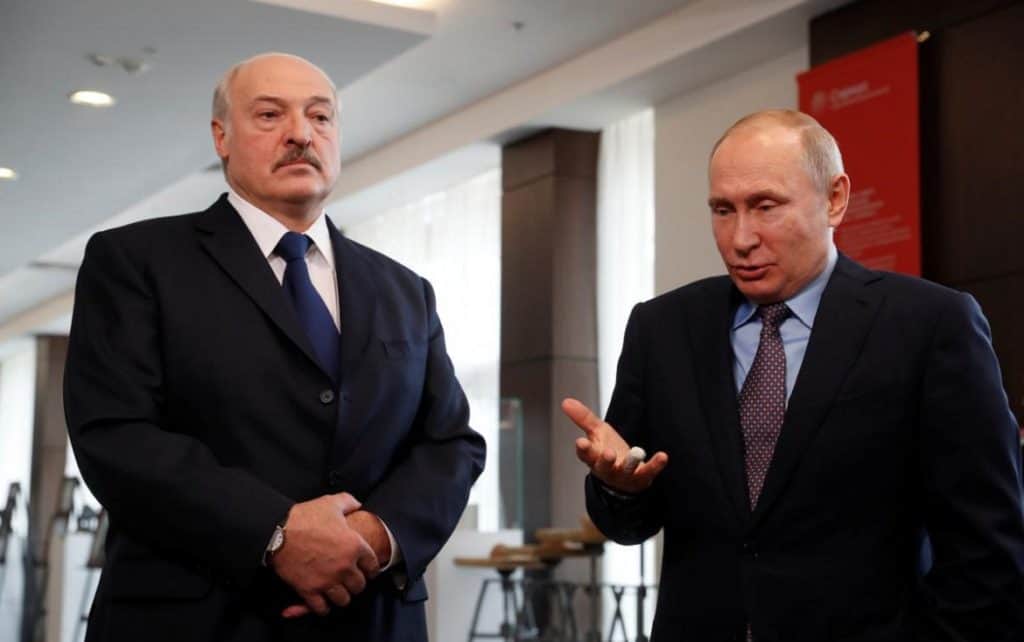By Denis Korkodinov
Minsk, apparently, is forever lost for the Russian project of creating the Union State, in which Moscow intended to occupy a dominant position. With Washington’s support, Alexander Lukashenko seems to be saying goodbye to Vladimir Putin, who is beginning to show concern over the fact that, thanks to Belarus, the North Atlantic Alliance has come close to Russian borders.
It is important to note that Moscow, starting in 2019, has noticeably weakened its influence on Minsk. This was due to the need to solve their own ambitious problems associated with the formation of a new cabinet, constitutional and economic reform. For this reason, the Kremlin has ceased to pay close attention to the country of the post-Soviet space located in Eastern Europe, believing that Belarus, whose leader in the West was considered a dictator, will never show a desire to break the “brotherly union”.
When the Union State was formed in 1999, the Kremlin proceeded from the opinion that Belarus would unquestioningly obey the Russian dictate. For this reason, Moscow considered itself entitled to increase pressure on Minsk, which caused resistance from Alexander Lukashenko. As a result of this, the integration of the Russian-Belarusian process was actually blocked. Moscow and Minsk failed to agree on any clause of the agreement, which, of course, was facilitated by the position of Washington, which proposed to Alexander Lukashenko what he had dreamed about for so long – exemption from American sanctions.
Meanwhile, Alexander Lukashenko now has very few opportunities to openly confront Moscow. Therefore, he uses disagreements in the energy sphere in order to explicitly inform his Russian partners of his intentions to break off relations with them. In other words, the energy dispute between Moscow and Minsk is just an excuse for Belarus, which has long decided to secede from the Union State, to begin an active rapprochement with the United States.
Currently, Minsk has financial advantages in connection with the use of two oil refineries for the transit of Russian oil. However, due to the increase in tariffs, Alexander Lukashenko lost the last levers of managing the oil industry, which confronted him with the need to find new partners in the international arena. In turn, Minsk’s aspirations to impose its own conditions for the oil and gas transaction led to the fact that on January 1, 2020, Moscow completely refused to carry out further oil supplies. However, in accordance with the agreement reached on February 7, 2020, oil supplies were resumed on a limited scale, which does not satisfy the Belarusian needs for hydrocarbons. In this regard, Minsk continues to insist on an alliance with Washington.
In addition, the leadership of the state oil company Belneftkim began negotiations with Saudi Arabia and the United Arab Emirates in order to ensure the supply of “black gold”. This decision was dictated by the need to organize the maximum load of oil refineries, which were forced to reduce their work due to restrictions on Russian supplies.
Currently, Minsk has acquired crude oil from Norway and Kazakhstan. However, this turned out to be an unprofitable event, since the quality of Norwegian and Kazakh oil does not meet Belarusian requirements.
It is not yet clear when Alexander Lukashenko will finally sever allied relations with Moscow, expanding his cooperation with Washington. The administration of the White House, apparently, will seek to influence Belarus so that it rejects any Russian proposals for cooperation and the implementation of the Union State project. And Alexander Lukashenko, most likely, is ready to force events in the Russian-Belarusian tension.
(The opinions expressed in this article are solely those of the author and do not necessarily reflect the views of World Geostrategic Insights)







